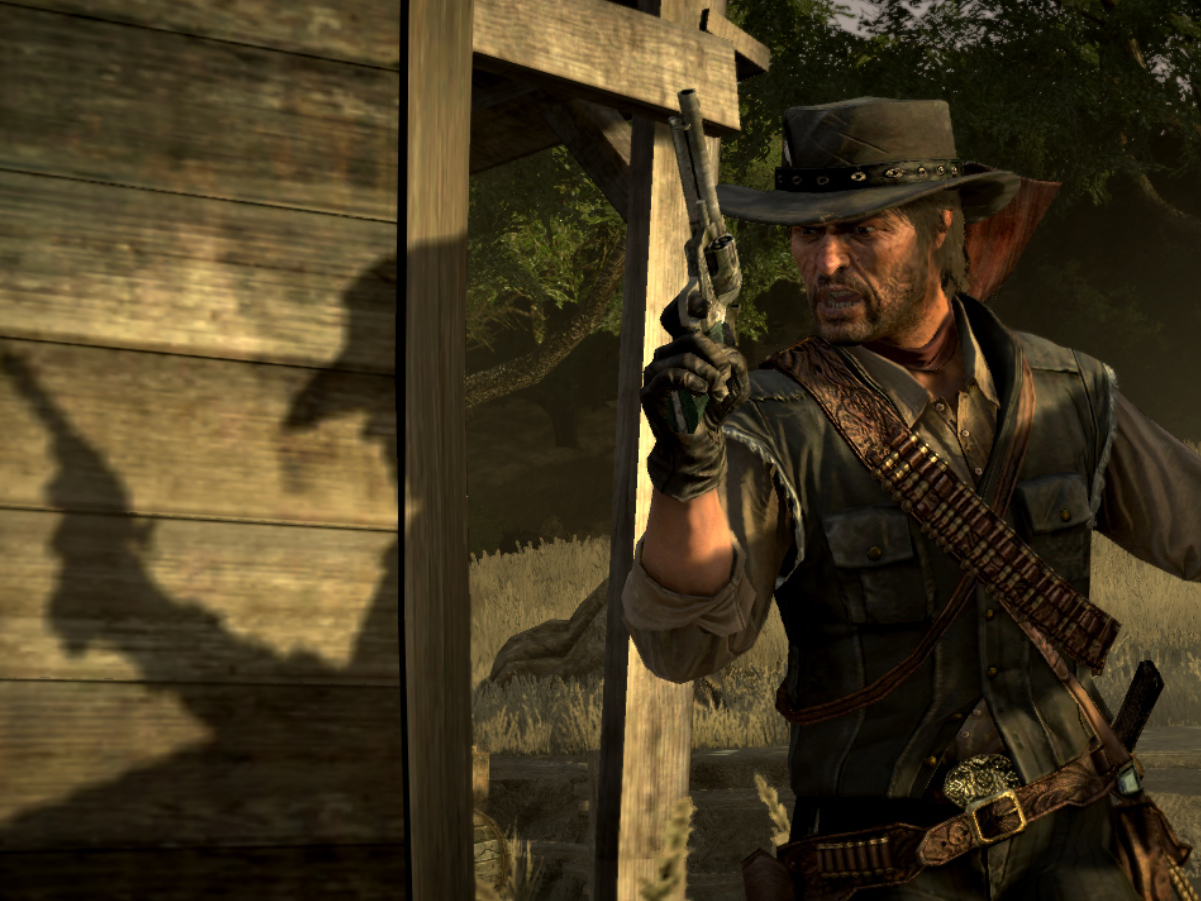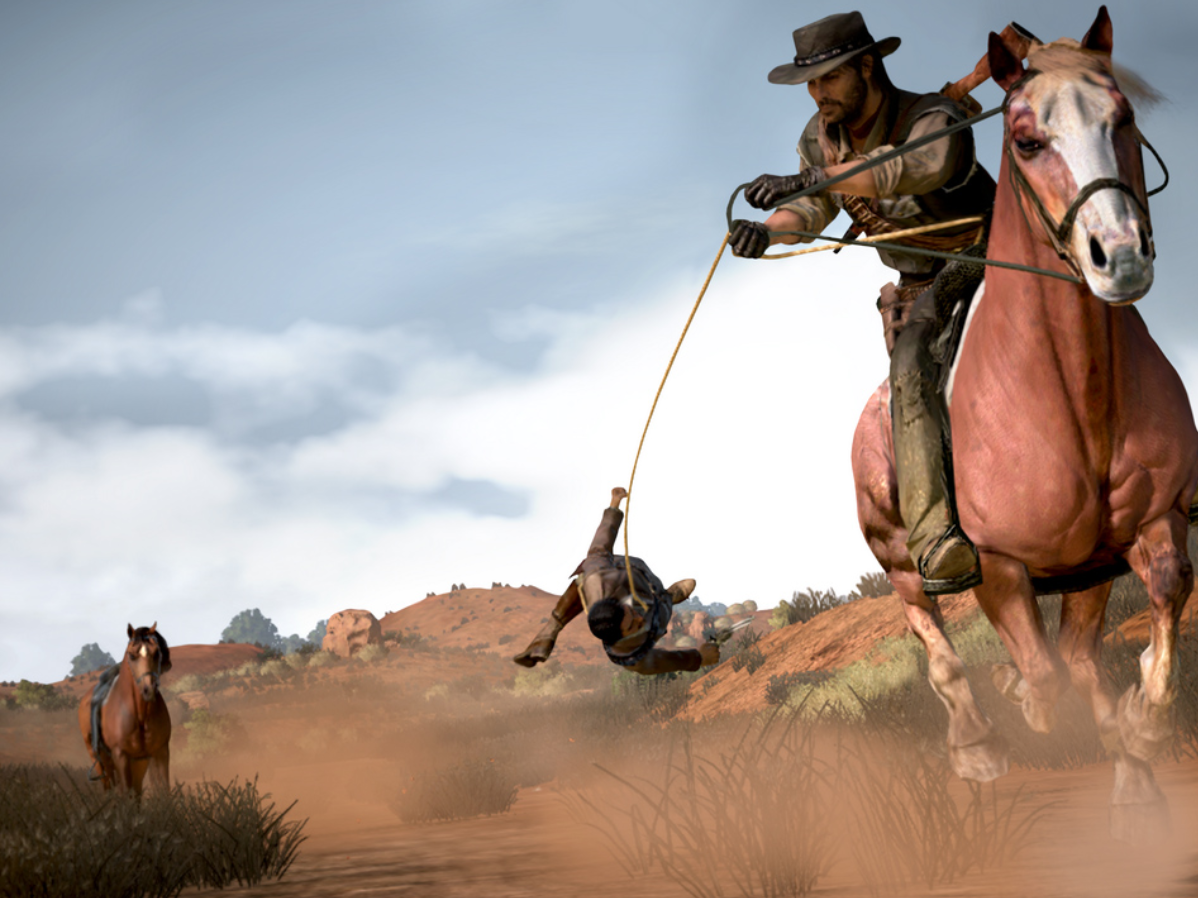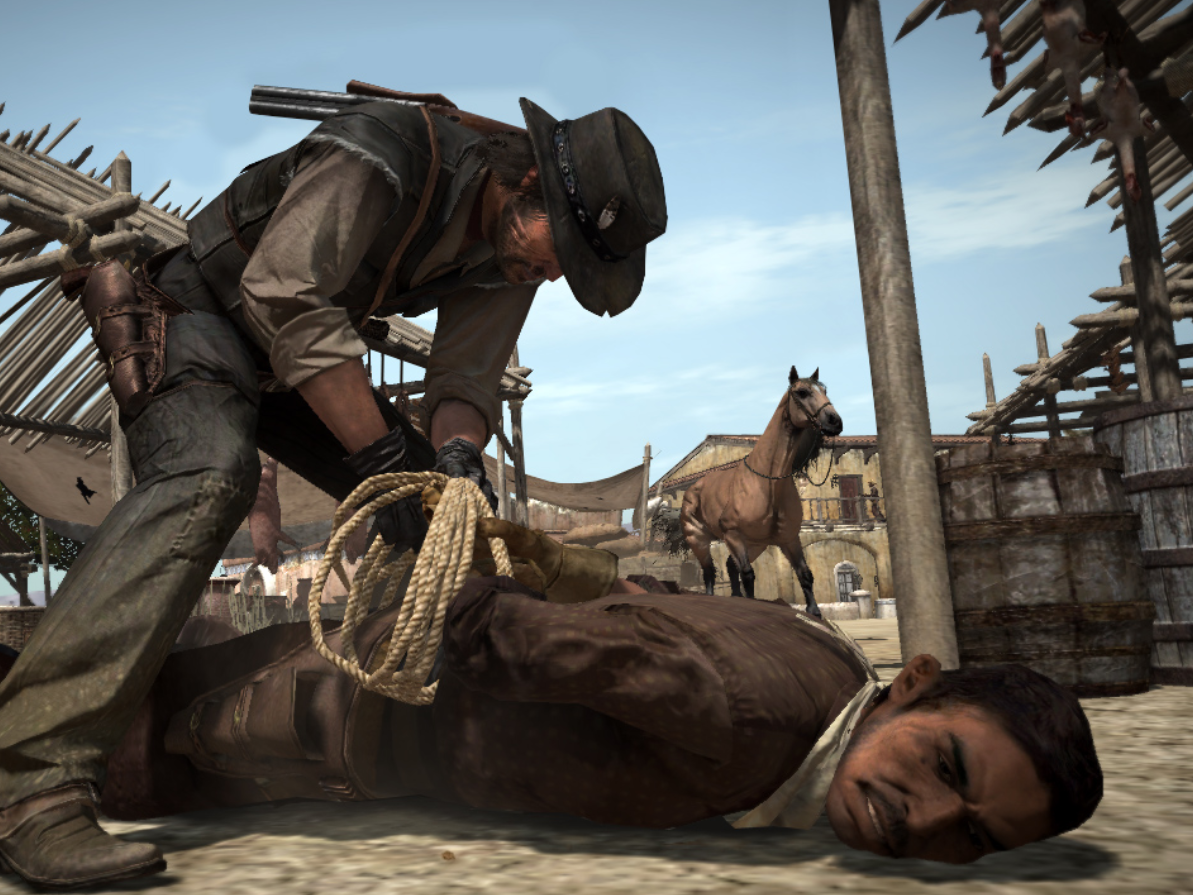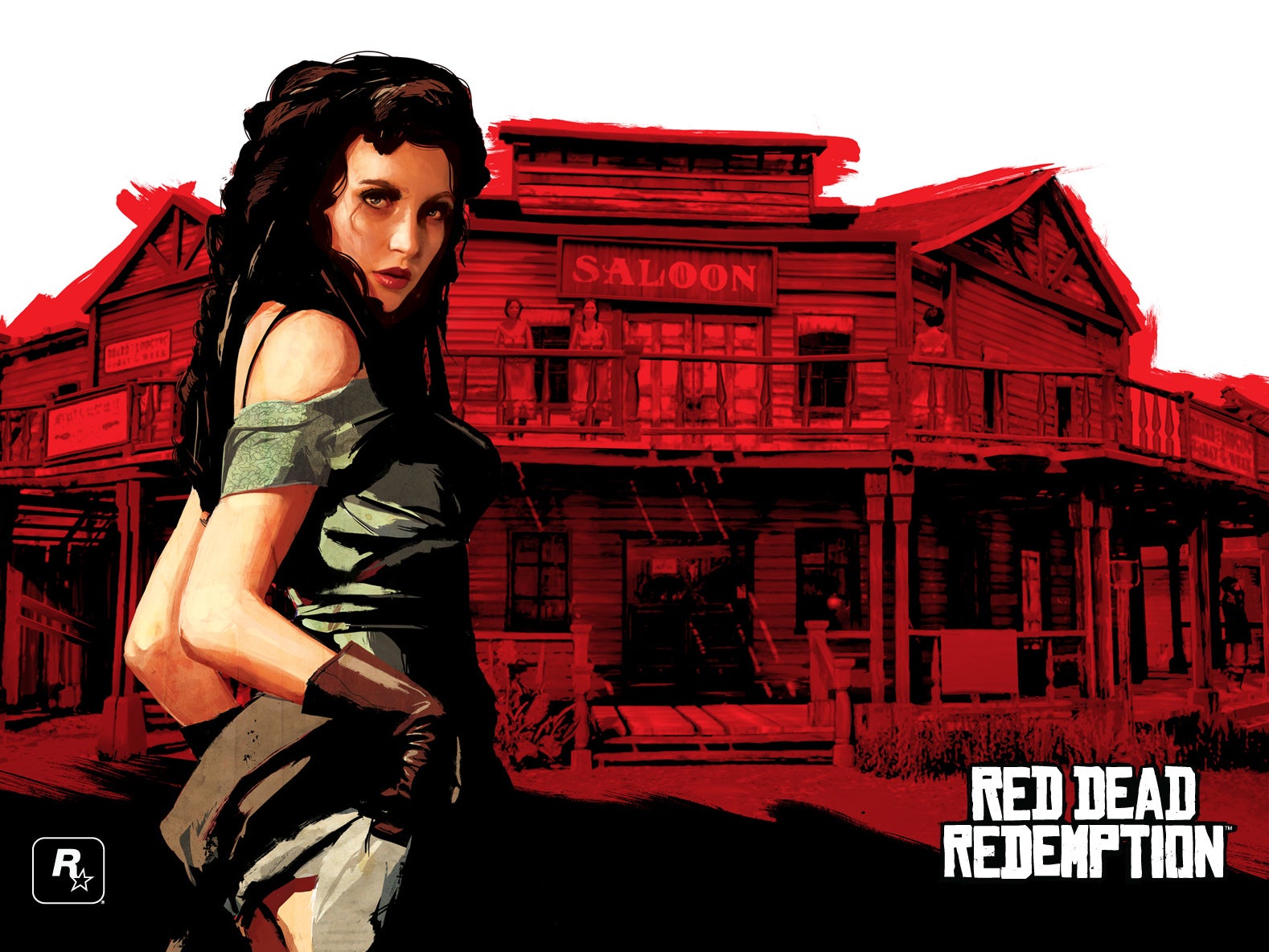Savagery, sexism and racist stereotypes: The chequered legacy of Red Dead Redemption
Rockstar Games helped introduce a whole new generation to the western genre, but 10 years on from Red Dead’s release, it’s harder to dismiss the game’s ugly side, writes Louis Chilton


Westerns are dead, they say, again and again; they have ridden off into the sunset. Surely no other genre has been sent to the mortuary with such clockwork alacrity, as if with each new iPhone generation, some fresh nail is hammered into John Ford’s dusty coffin. Yet still the western lives on, adapting and modernising, enduring in the crevices of popular culture.
While westerns are still thought of as living within the imagination of cinema – the blood-splattered revisionism of Quentin Tarantino still brings audiences in their droves – the genre has long expanded beyond that. When we talk about popular westerns in the 21st century, there is no more significant subject than Red Dead Redemption.
Released on 18 May 2010 on the PlayStation 3 and Xbox 360 consoles, Red Dead Redemption was an immediate hit. It was billed as Grand Theft Auto on horseback, both because of its shared publisher, Rockstar Games, and its similarly violent open-world gameplay. It would score few points for originality – as well as Grand Theft Auto, the game owed a sizeable debt to 2005’s Gun – but more than made up for it in style, scope and execution.
Red Dead Redemption follows John Marston, a former outlaw who wants nothing more than to settle down into a peaceful life with his wife and young son. His violent past clings to him; you can see it in the jaded way he carries himself, on his face, in the disfiguring scar across his cheek. The game begins as John is tasked with hunting down and killing three members of his former gang, or the Pinkertons will deny him any hope of freedom.
Far from the broad, unsavoury satire of Grand Theft Auto, this was a game that took itself, and its players, seriously. The venerable film critic Philip French likened it to Michael Crichton’s Westworld, writing: “I haven’t felt as excited, so utterly enveloped, since the first time I drove into Monument Valley after decades spent watching movies set there.” Perhaps more so than any before it, this was a game that was being discussed – widely – as a work of art.

Moreover, Red Dead was a game that, for a short while, shot westerns back into the mainstream. It embraced and understood its genre better than Grand Theft Auto ever understood crime. Like the best westerns, Red Dead is, to some extent, a story about itself, about the way the west’s story was told and retold, how myths were forged in gold and gunpowder.
Hard-bitten and ambitious, the game deftly repurposed some of the best parts of classic westerns, but it also recycled many of their failings. Perhaps most glaringly, black characters are pretty much non-existent in the world of Red Dead, only appearing as occasional bounty targets and insignificant NPCs. While historians estimate that one in four cowboys were black, they were typically erased from the western genre. It’s a problem that persists even in some of the best modern oaters, like the otherwise excellent Coen brothers film The Ballad of Buster Scruggs. Say what you will about the dicey racial politics of Tarantino, but his westerns are among the most overtly race-conscious as have ever been made.
Erasure isn’t the game’s only problem with race – stereotyping is just as prevalent. At one point, Marston meets and befriends an irritating stereotype known as “Irish”, who is Irish, and who is, not coincidentally, depicted as a work-shy, unreliable alcoholic. Red Dead’s few (minor) Chinese characters are inveterate opium smokers.
The middle section of Red Dead takes Marston across the border to Mexico, where he stumbles into the thick of a civil war. In Mexico, he meets Captain Vincente de Santa, one of the game’s secondary villains. De Santa is strongly coded as queer, through his interactions with a younger male servant and through other character’s discussions about him. He is also sly, sadistic, and the subject of homophobic jokes made behind his back.

When he is finally killed, one character remarks: “A lot of young boys will sleep safer in their beds now.” Whether the game is suggesting that De Santa is really a paedophile, or simply presuming that unenlightened 18th-century cowboys would conflate queerness with paedophilia, barely matters; he is the game’s only substantial queer representation, and he’s deeply, shabbily compromised.
Women don’t fare much better. The game does feature a couple of fleshed-out female characters – namely, rancher Bonnie Macfarlane and Marston’s wife, Abigail, a former sex worker and outlaw about whom the game is refreshingly non-judgemental. But on the whole, women are objectified: in the saloons and shadier hangouts of Red Dead’s world, scantily clad prostitutes essentially serve as set decoration.
Even more troubling than this is the violence against women. Some of this is thrust upon you: in one of the game’s most upsetting scenes, a severely beaten Bonnie Macfarlane is strung up in a noose. Some of the violence, however, is left at the feet of the player. Outside of Red Dead’s story missions, players are able to murder innocent civilians; they are able to kidnap sex workers, hogtie them and place them on a train track, bury an axe in their skull, or blow them up with dynamite. The game does not always encourage you to do these things, but sometimes it does – even offering an in-game achievement for pulverising a tied-up woman with a train.
If Red Dead wished to tell the story of John Marston, conscionable outlaw, on a Ulyssean journey to return to his family, then why let him moonlight as a deranged serial killer? Some might say that the game is giving you the “freedom” to run riot in the Old West however you see fit, that it is offering the so-called sand box from which the open-world genre draws its common nickname. It offers only the illusion of freedom.
As Marston, you are unable to apply for a loan, or shake someone’s hand, or perform any number of other commonplace activities that might be deemed “immersive”; you are free only insofar as you are free to hurt, to defile.
Now, in Red Dead’s defence, it would be a tasteless rewriting of history to excise all notion of racism and sexism from its rendering of the past. But if we are to tell the story of persecution in the Old West, our unwavering perspective cannot be that of the perpetrator. One of the best westerns of recent years, David Milch’s masterful TV series Deadwood, is harrowing in its portrayal of the Old West’s brutality. Still, Milch takes the time to get to know its victims, to expose the humanity behind the archetypes. This is where Red Dead falters.

We can find some implicit admission of the game’s shortcomings in the changes made for its follow-up, 2018’s acclaimed prequel Red Dead Redemption 2. Although Red Dead 2 still focused primarily on the exploits of its white, male protagonist (a jaded heavy called Arthur Morgan), it included larger roles for women and non-white characters, and dialled back some, albeit not all, of the more scandalising excesses.
What’s more, Red Dead Redemption 2 had the benefit of next-generation console technology; it is easier to see the nuance in people when they are rendered more realistically. For all the game’s contemporary wizardry, the original Red Dead’s human characters appear crude and unimpressive by today’s standards, buried deep in the uncanny valley (or should that be the uncanny corral?).
Like its 2018 successor, Red Dead Redemption can still be a blast to play. Though it might be even harder to look past Red Dead’s ugliness in another decade’s time, it was a game that always shot from the hip, taking something old and making it fresh and compelling. It’s just a shame so many people got caught in its crossfire.
Bookmark popover
Removed from bookmarks